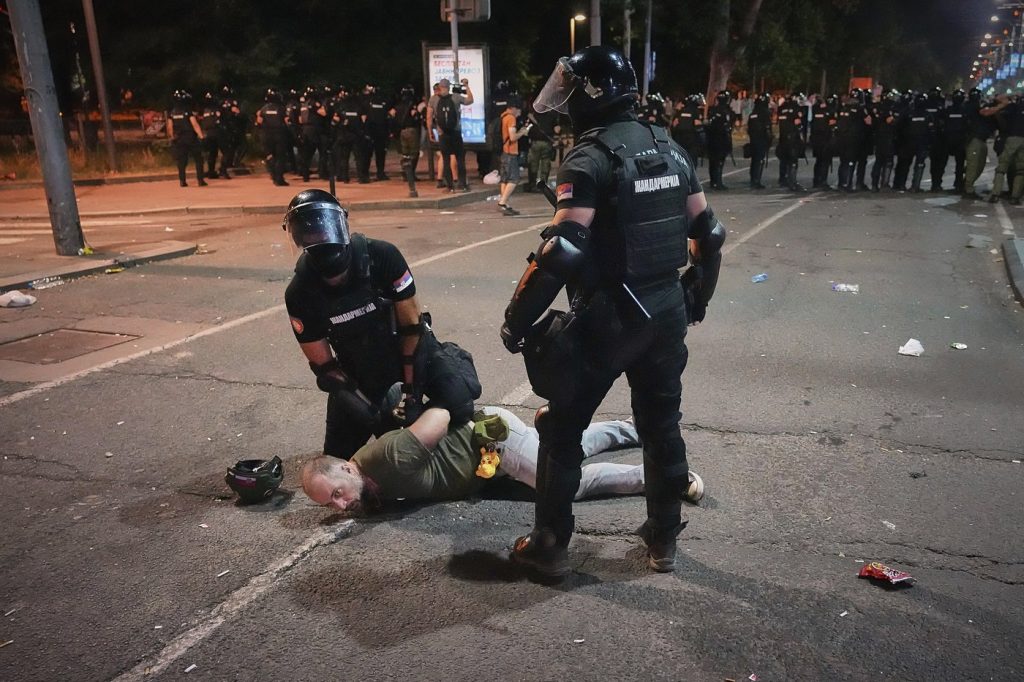BELGRADE, Serbia (AP) — Serbian police detained 79 university students and other protesters as they dismantled street blockades in several cities, part of ongoing protests against President Aleksandar Vucic's populist government. The demonstrations have intensified in recent weeks, reflecting deepening public dissatisfaction with Vucic’s administration.
Riot police intervened late Wednesday and early Thursday in Belgrade, Novi Sad, Nis, and Novi Pazar. Authorities have denied allegations of police brutality, claiming the officers acted "in accordance with the law" during the unrest. However, university students leading the protests reported that police charged at and injured many peaceful demonstrators. Witnesses described scenes where riot police used batons and shields against protesters, resulting in injuries to several individuals, including hospitalization for four students and one with a broken clavicle.
The Interior Ministry confirmed that four police officers were injured during the incidents, and a police vehicle was reportedly damaged. The surge in tensions followed a large rally on Saturday, where tens of thousands gathered in Belgrade to demand early parliamentary elections. The demonstration turned violent, leading to clashes between riot police and groups of protesters.
Despite ongoing protests that have persisted for more than eight months, President Vucic has refused to call for snap elections. These protests originally began in November after a tragic incident where a renovated rail station canopy collapsed in Novi Sad, killing 16 people and raising concerns about alleged corruption and negligence in state infrastructure projects.
While parliamentary and presidential elections are not scheduled until 2027, Vucic has increased government efforts to suppress protests that he has labeled as "terror" aimed at undermining the state. Critics assert that Vucic has increasingly adopted authoritarian measures since he took office over a decade ago, stifling democratic freedoms while permitting corruption and organized crime to flourish within Serbia.
Serbia is formally seeking membership in the European Union; however, Vucic's government has maintained close ties with Russia and China. These geopolitical alignments complicate the country's aspirations for EU integration, as the government faces scrutiny over its internal policies and handling of public dissent.
The ongoing protests signal a significant challenge to Vucic’s rule, highlighting the growing frustration among various segments of Serbian society, particularly the youth who are demanding accountability and transparency from their leaders. As the situation unfolds, both the government's response to dissent and the protesters' determination will play crucial roles in shaping Serbia's political landscape in the coming months.











